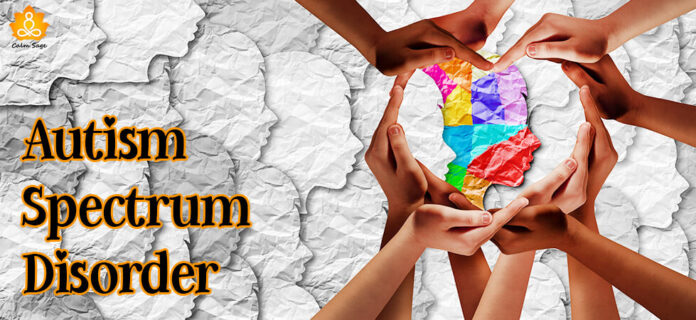Autism has become a popular phenomenon around the world. Since the condition was named in 1911 by the German psychiatrist, Eugen Bleuler, it has been prevalent in our society. These days, one is at least related to or knows someone living with autism.
Despite the popularity of autism, it remains one of the most misunderstood and stigmatised disorders around us. Societies ostracise people living with autism, and parents see them as a punishment or a burden; governments have done little to improve the well-being of people living with autism.
Autism, also known as Autism Spectrum Disorder (ASD), consists of various groups of neuro-developmental conditions which can vary from atypical social communication and interaction to unusual reactions to sensations. It is a range of disorders that affect the development of the brain and each patient’s condition is peculiar – while some cases might hinder verbal communication, others might be proficient in speaking.
Although conspiracy theorists once (erroneously) opined that autism could be caused by early childhood immunisation, such as polio vaccines, science has rebuffed the misinformation and established that the condition’s leading causes are environmental and genetic factors.
Several studies have linked autism – although not the severe variants – with extreme intelligence. People living with autism can be described as repressed geniuses.
Autism is one of the most common developmental disabilities across the globe. According to the World Health Organisation, one in every 100 children has autism. It added that there are 135 million established cases of autism in the world. A significant portion of the world is living with the condition, with several cases across the developing world still unaccounted for.
Autism in Nigeria has remained primarily misunderstood and rarely spotlighted, which translates into the lack of specific statistics about the condition in Nigeria. However, a study in the University of Lagos Journal of Clinical Science posited that one out of every 125 to 150 Nigerian children is living with this condition – amounting to about 600,000 cases. It was also established that male children are more prone to the condition than girls. The spectrum of autism in Nigeria cuts across class or social standing.
Although the condition is prevalent in our society, shockingly, little is known about autism, as myths and superstitions shroud scientific information.
While organisations like the Zeebah Foundation are bridging the knowledge gap and equipping autistic children for the outside world’s demands, parents, the government, and society must enable a seismic shift in our mindsets about the condition.
Nigeria is a country steeped in culture and spirituality, which has perpetually dictated people’s reactions to autism or other forms of cognitive disorder. Most parents with autistic kids battle denial and the syndrome of “God Forbid” in the early stages.
Parents shun early diagnosis to protect themselves from reality unwittingly. However, they must accept their child’s condition early and ignore the misconception that autistic children are some sort of “test from God”.
Learning beyond the rudimentary thoughts about autism is also necessary. Parents should seek science-backed, verified information to make informed decisions on behalf of their children. With the proper knowledge, guardians can get the child the needed help, including taking advantage of professional aids like the Applied Behaviour Analysis, which is used by The Zeebah Foundation to teach several skills that will help improve the child’s challenges in communication, social skills, stereotypical behaviour, and even academics.
ASD is not a badge of disgrace and parents must desist from treating it as such. They must allow autistic kids to flourish and play outside like the rest of the children – although with adequate supervision. Children living with ASD should not be hidden; they are survivors to be shown off.
Our society’s interaction with and perception of autism needs significant improvements also. A fundamental fault incites stigmatisation, pity and, horribly enough, disdain for people with autism.
They are often treated like lesser humans, and the discrimination becomes apparent in our daily interactions with people living with autism.
Results at The Zeebah Foundation have established over time the importance of communities adopting and integrating children living with autism into society.
People living with autism are not burdens to be avoided but special people that deserve love and care.
The government must provide infrastructure, legislation and policies that guide the existence of people living with autism. Across all three tiers of government, there must be deliberate efforts to improve the well-being of autistic people. Many employers would not readily employ people living with autism, citing several reasons informed by discrimination. To curb this, laws that protect people with autism against discrimination, particularly discrimination in employment, must be established and enshrined.
Improvements must also be attempted in funding the education budget by the government across all tiers, particularly concerning people with autism. The government must invest more in establishing quality facilities for world-class education for autistic persons. Special investment must go into the areas of speech therapy, occupational therapy and necessary IT/computer skills to aid the transition of children living with autism. More attention must also be given to forms of education that will prepare them for future employment and independent living.
The social institutions – family, society, and government – are the basis upon which sweeping changes can be built if we are determined to improve our interactions with people living with autism. A shift in mindset and actions will undoubtedly be a move in the right direction.
- Ogbe is the Group Chief Executive Officer, Levene Energy Holdings. He is also the founder/Chairman of Zeebah Foundation.


